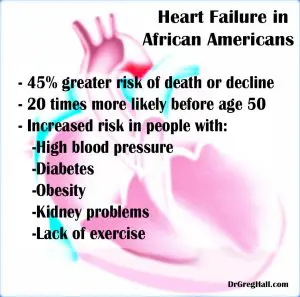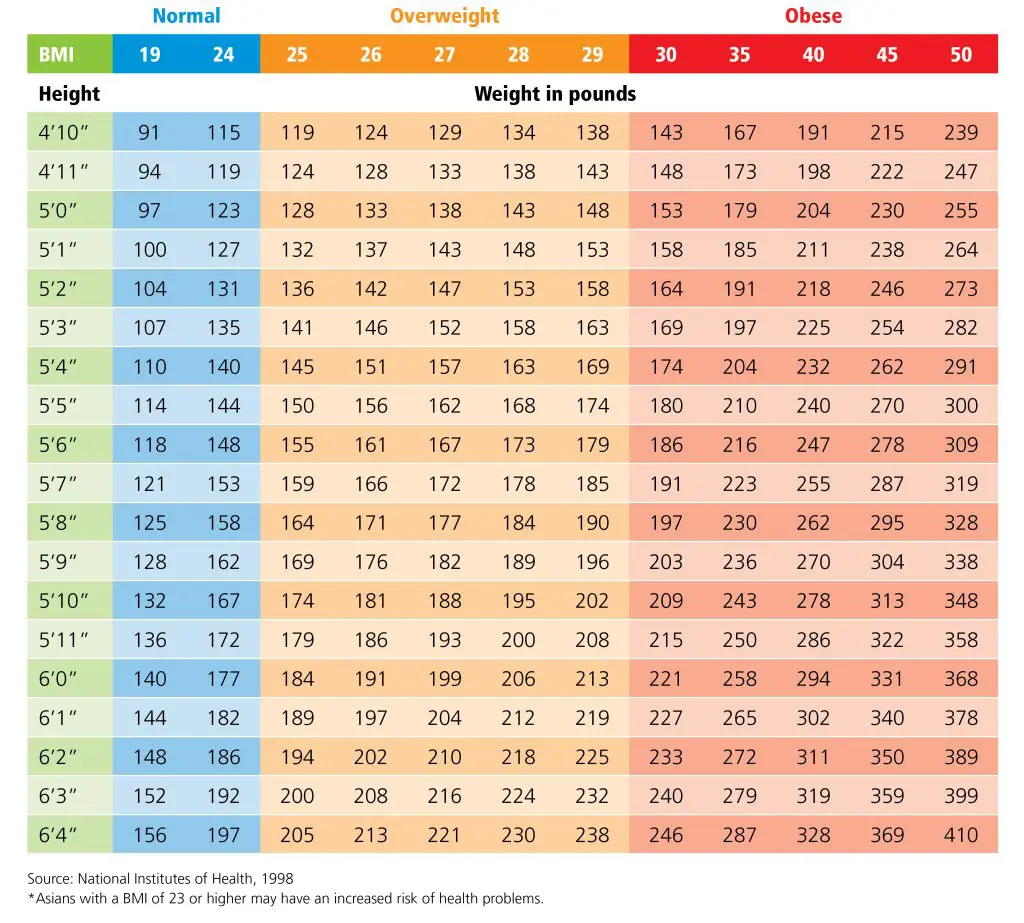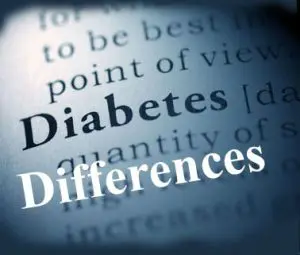Heart failure in African-Americans occurs more often and is more deadly. African Americans have a significantly higher risk and earlier onset of heart failure and heart-related death compared to all other populations in the United States. In fact, African Americans are two and a half times more likely to die from heart failure than Whites, and it occurs at an earlier age. Much of the added occurrence of heart failure can be attributed to poor blood pressure control and being on the right medications to better control your blood pressure (take a look at my article “Are you on the right blood pressure medicine?”). But there are also other causes to know.
The “heart failure” name is not the best (in my opinion) to describe the situation with the heart because it gives an impression of impending and unavoidable “failure” of the heart. In reality, people are admitted to hospitals across the nation with the diagnosis of “heart failure” and then are given medications that readily reverses the “failure.” The term “congestive” heart failure is also used and reflects the situation of too much fluid for the heart to process. The “congestion” in the heart effects its proper function like the congestion in your nose when you have a cold. In congestive heart failure, “water pills” and other medications are given and the “extra” fluid is flushed (urinated) out.

The problem with heart failure is complicated, but for our purposes can be considered a combination of
- too much fluid in the body
- too much heart muscle (from high blood pressure)
- abnormal squeezing (or relaxation) of the heart muscles
The occurrence of heart failure, although not as ominous as it sounds in the short term, is a sign of a serious heart condition that can bring premature death. Like many other health conditions, heart failure occurs more frequently in African Americans. The major drivers to this racial disparity is a higher incidence of obesity, high blood pressure, diabetes, physical inactivity, and smoking. To see if you are at risk, let’s review each risk factor.
Obesity
A significant number of African Americans are obese by a number of standards. A strict criteria starts obesity at a BMI (Body Mass Index) of 30. Your body mass index tries to predict an ideal weight based on your height. Look at the chart below and find your height on the left and then tract across to your weight. If you are in the red, many will say you are “obese.”

You and I both know that African Americans culturally prefer being “meatier” and many African Americans in the red areas are completely happy with their weight and size. Others have suggested a different (more racially appropriate) chart be used for African Americans and other racial groups, but there is not widespread acceptance.
High Blood Pressure
High blood pressure (also called hypertension) that is untreated is the biggest risk for having heart failure in African Americans. Having your blood pressure controlled to less than 130 over less than 80 is a huge step in the right direction. And being on the correct medicines for the treatment of high blood pressure and watching how salt impacts your health is important as well.
Diabetes

Type 2 Diabetes is the most common type in African Americans and occurs with an 80 percent greater chance. Getting control of blood sugars with medications and diet adjustments is critical to avoiding poor control that could lead to heart failure. Shooting for a HbA1c near 7.0 or below is an indication of good control. There are other important differences in the medical care of diabetes in African Americans and you can review them HERE.
Physical Activity
A lack of physical activity is bad for your health and that alone can be a risk factor for heart failure. Studies have consistently shown that physical activity reduces risks of heart disease, stroke, and heart failure. By walking, running, biking, dancing and more you can make great progress in decreasing the risk for heart failure. Set a schedule, track your steps, and get started making the rest of your life more health drama-free. If you swim use this waterproof Fitbit to track your performance.
Smoking
A recent study found that “cigarette smoking sharply increases the risk of heart failure in black men and women.” The study that looked at thousands of African Americans (both smokers and non-smokers) and found that:
- smokers had a larger heart size (which is associated with heart failure)
- smokers had a lower heart muscle strength (which is associated with heart failure)
- smokers had a greater risk for needing to be hospitalized for heart failure
All of this is in addition to the increased risk for diabetes due to smoking (See “Heavy Smokers at Higher Risk for Diabetes”) and the increased cancer and circulation problems.
Let’s get real . . .
Heart failure is real and touches almost ever African American family. We all know family members with diabetes, high blood pressure, kidney disease, and smokers. They are on the road to heart failure and because they are related to us . . . we are at risk too.
It’s time to get serious about preventing it.














